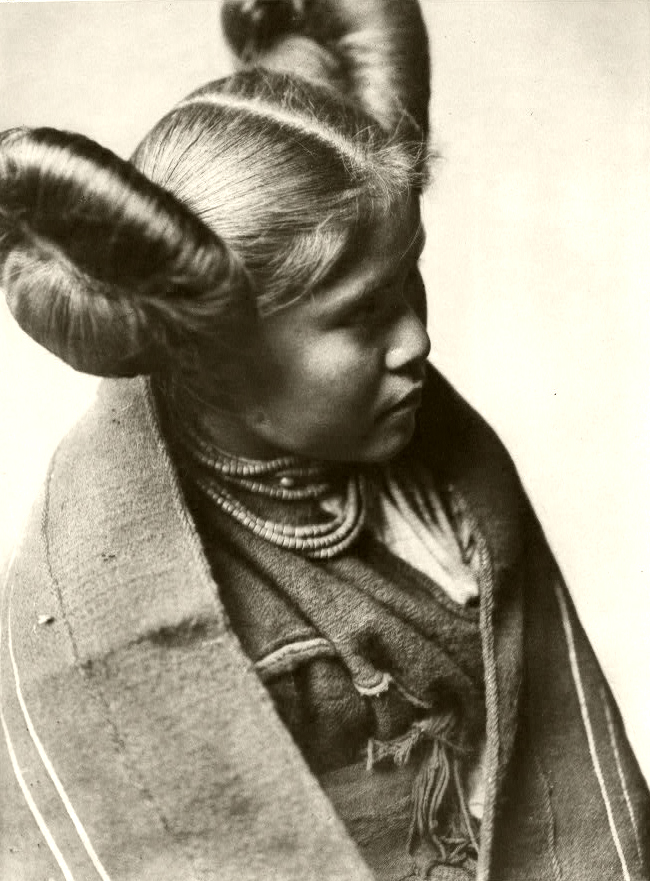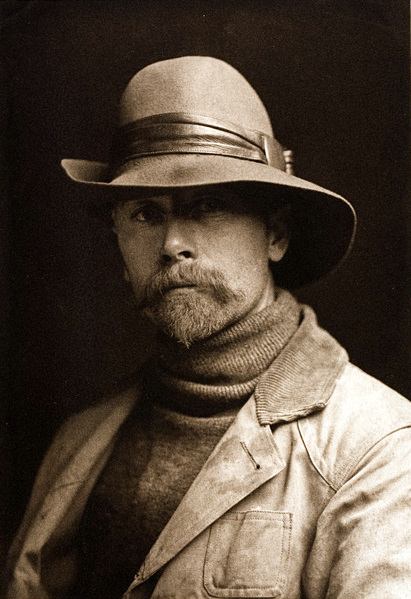The above picture, taken by American West photographer Edward Sheriff Curtis, depicts a young woman from the Tewa tribe, wearing her hair in the style of an unmarried maiden. It was composed two years prior to the passage of the Indian Citizenship Act, legislation that gave Indigenous Peoples rights of full U.S. citizenship at a time when the popular idea among white culture was that Native Americans were a “vanishing race” and would soon completely disappear. Thankfully, that hasn’t occurred, though Curtis’ photographs are an amazing history lesson nonetheless. From a 1911 New York Times article, “Lives 22 Years With Indians To Get Their Secrets,” in which Curtis discusses becoming an Indian priest:
“‘Do you mean that you are a Pueblo priest in good order?’ asked the reporter.
‘Yes,’ said Mr. Curtis,’ and I am a priest in other nations. If I went back there to-day I could officiate as a priest in the snake-dance, that is, in the order to which I belonged.’
‘Then you were adopted into the tribe?’
‘No,’ he said. ‘That isn’t necessary. Being adopted into a tribe is nothing–nothing. The thing is to become a member of a secret order. That is the only way to learn their secrets, and to do that it is not necessary to be adopted into the tribe.
‘Every ceremonial group you get into makes it easy to get into others. Belonging to the Snake Order in that village wouldn’t necessarily let me into an order in another village, but it would give me a good ground to make an argument.
‘My belonging to the Snake Order in Arizona helped me greatly when I tried to get into a ceremonial order in Alaska.’
‘You were a priest in Alaska, too?’
‘Oh, yes,’ he said, in a matter of fact way.
‘But what could the Alaska Indians know about what was done so far off as Arizona?’
‘Oh, when they saw my photographs of the snake dance and heard the phonograph records–‘
‘Do you mean to say that you photographed and phonographed these ceremonies while you were officiating as a priest?’
‘Yes.’
‘How did you make them agree to such a thing?’
‘It was not easy,’ said Mr. Curtis, ‘but I finally convinced them of the advantages of getting in the record.'”


